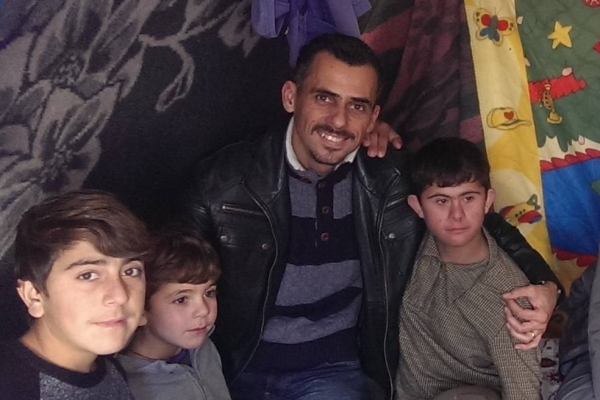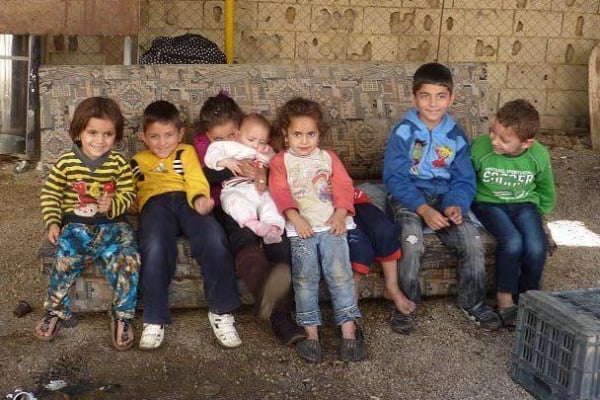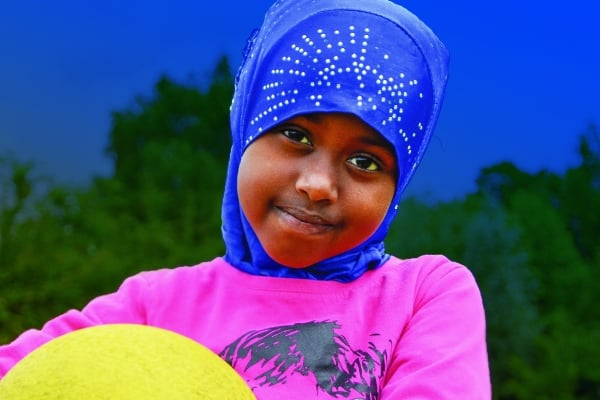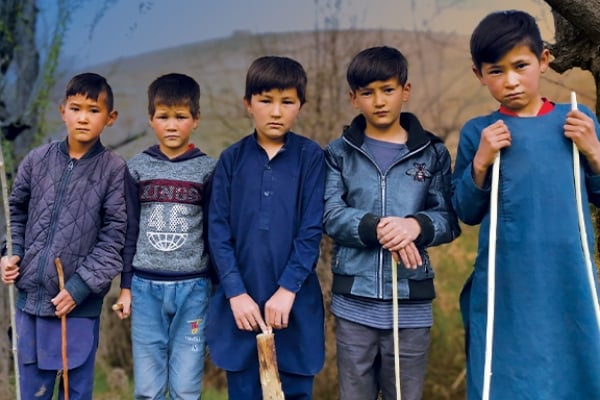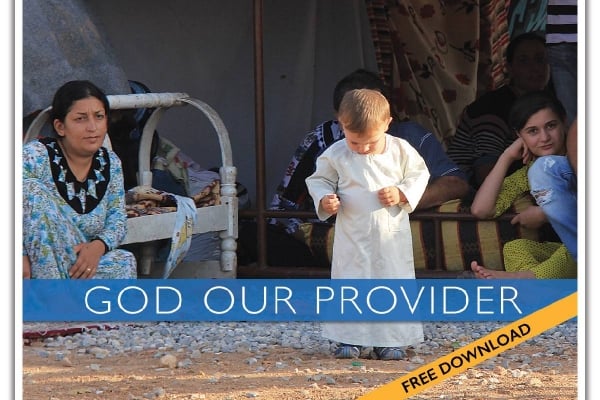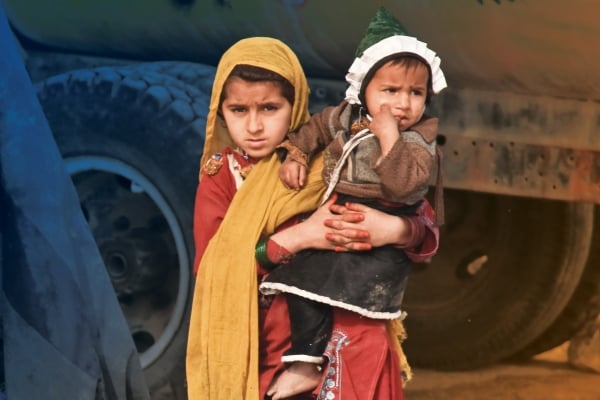
Connection Points: Welcoming Afghan Refugees
Amid great tragedy and pain, God is opening doors for the gospel among the Afghan people! As these refugees enter our neighborhoods, He is giving the Church in the United States and in many countries around the world an incredible opportunity not only to meet tangible needs but also to introduce people who’ve never heard the gospel to the eternal hope of Christ.
The tips below, based on advice given by a Christar worker serving among Afghans, are designed to help you minister to the least-reached people the Lord is bringing to your community.
Adopt a humble, teachable posture. Yes, making yourself vulnerable in an unfamiliar cultural setting can seem awkward; but think how your new friends must feel! Be willing to learn. (Here’s a first lesson: People from Afghanistan are called “Afghans,” not “Afghanis.” Afghanis are a monetary unit like dollars.)
Don’t be afraid of making genuine mistakes, and model humility and gentleness (as Jesus did for us), as you step outside your comfort zone. As you walk alongside refugees, start by learning a few words of Pashto or Dari (a type of Persian), the two official languages of Afghanistan, to help put them at ease.
Connect with a local refugee agency to learn what services they are providing and what is not being offered. (Check the searchable directory provided by the Office of Refugee Resettlement to find organizations in your area.) This will help you focus your efforts to fill in the gaps and orient those you are serving to find the assistance they need.
If you encounter a language barrier, coordinate with the refugee agency or connect with those who have worked cross-culturally in Afghanistan to find local interpreters who speak Dari or Pashto.
Afghan refugees have many practical needs as they start over in an unfamiliar place. Coming alongside them to help meet some of these needs can be a powerful demonstration of God’s love and provision.
For instance, if you’ve moved to a new home in a new city, you know how overwhelming it can feel to set up the kitchen with staples. Now, imagine trying to grocery shop in a store where product names are foreign and you’re faced with a paralyzing number of options. Help your refugee friends locate a nearby ethnic market or grocery that carries more familiar products.
Assisting with transportation can also be a meaningful way to reach out. Initially, offer to provide rides to the store, doctor’s appointments, etc. In the short term, introduce them to public transportation. In the long term, help them get a driver’s license.
In addition, think beyond providing for immediate needs, and consider how you can orient them for a new life in an unfamiliar place and culture. For example, take time to explain American customs to them, and show them not only where to buy food or receive medical care but also parks or other places where your family likes to go for fun.
As you welcome Afghan refugees to your community, understanding some elements of their cultural values can help you connect with some of their less obvious but still significant needs.
Afghan culture is hospitable:
Afghan culture is concerned for physical cleanliness:
Afghan culture (for those who are devout Muslims) is concerned for ritual cleanliness:
Afghan culture is very relational:
Afghan culture is down-to-earth:
As you seek to serve the Afghan refugees God is bringing to your community, don’t forget to ask Him to work through you and to open their hearts to the gospel. In His sovereignty, He is giving His people opportunities to demonstrate His love and communicate the hope He offers, and it’s vital to bathe this ministry in prayer.
Get more resources to help you reach out to Afghans at christar.org/welcoming-afghans.
The tips below, based on advice given by a Christar worker serving among Afghans, are designed to help you minister to the least-reached people the Lord is bringing to your community.
Be a Learner
Adopt a humble, teachable posture. Yes, making yourself vulnerable in an unfamiliar cultural setting can seem awkward; but think how your new friends must feel! Be willing to learn. (Here’s a first lesson: People from Afghanistan are called “Afghans,” not “Afghanis.” Afghanis are a monetary unit like dollars.)Don’t be afraid of making genuine mistakes, and model humility and gentleness (as Jesus did for us), as you step outside your comfort zone. As you walk alongside refugees, start by learning a few words of Pashto or Dari (a type of Persian), the two official languages of Afghanistan, to help put them at ease.
Identify the Gaps
Connect with a local refugee agency to learn what services they are providing and what is not being offered. (Check the searchable directory provided by the Office of Refugee Resettlement to find organizations in your area.) This will help you focus your efforts to fill in the gaps and orient those you are serving to find the assistance they need.If you encounter a language barrier, coordinate with the refugee agency or connect with those who have worked cross-culturally in Afghanistan to find local interpreters who speak Dari or Pashto.
Come Alongside
Afghan refugees have many practical needs as they start over in an unfamiliar place. Coming alongside them to help meet some of these needs can be a powerful demonstration of God’s love and provision.For instance, if you’ve moved to a new home in a new city, you know how overwhelming it can feel to set up the kitchen with staples. Now, imagine trying to grocery shop in a store where product names are foreign and you’re faced with a paralyzing number of options. Help your refugee friends locate a nearby ethnic market or grocery that carries more familiar products.
Assisting with transportation can also be a meaningful way to reach out. Initially, offer to provide rides to the store, doctor’s appointments, etc. In the short term, introduce them to public transportation. In the long term, help them get a driver’s license.
In addition, think beyond providing for immediate needs, and consider how you can orient them for a new life in an unfamiliar place and culture. For example, take time to explain American customs to them, and show them not only where to buy food or receive medical care but also parks or other places where your family likes to go for fun.
Grow in Understanding
As you welcome Afghan refugees to your community, understanding some elements of their cultural values can help you connect with some of their less obvious but still significant needs.Afghan culture is hospitable:
- The gift of a welcome basket with dried fruit and nuts, green and black tea, and candies or sugar will provide the staples they need to feel comfortable serving guests.
- Afghans traditionally sit on the floor to eat, so consider providing a “table” cloth (or piece of soft vinyl material cut into a rectangle, maybe 3-by-6 feet) to spread out on the floor at mealtime.
- See if they lack any basic household items, such as mattresses, pillows, blankets, towels, washcloths or dishcloths. Depending on the aid the refugee agency is offering, you may have opportunities to provide in generous ways to meet these immediate needs.
Afghan culture is concerned for physical cleanliness:
- For the bathroom, Afghans would appreciate having plastic sandals or slippers in varying sizes. For the main living areas, they could also use separate house slippers, as outdoor shoes are removed when entering the home.
- Many Afghans prefer using a plastic watering pot or bathroom mug to wash rather than toilet paper. These can be found at Asian grocery stores and on Amazon.
Afghan culture (for those who are devout Muslims) is concerned for ritual cleanliness:
- Though it may seem counterintuitive to Christians, providing Muslim refugees with an Islamic prayer mat (for a practice that is already ingrained within them) could demonstrate that you care about their spiritual needs and may open a door to share about your intimate connection with your Heavenly Father.
Afghan culture is very relational:
- Helping refugees keep in touch with loved ones, assuming they feel safe doing so, can be a significant way to demonstrate God’s care. This may mean helping them set up phone service with Wi-Fi/data and/or buying them a phone. Reloadable phone cards or voice call accounts such as those offered by companies like Keep Calling can be good options for enabling them to connect.
Afghan culture is down-to-earth:
- Refugees will need to quickly become familiar with their new neighborhood and wider surroundings, so city maps (paper and virtual) would be helpful.
Pray
As you seek to serve the Afghan refugees God is bringing to your community, don’t forget to ask Him to work through you and to open their hearts to the gospel. In His sovereignty, He is giving His people opportunities to demonstrate His love and communicate the hope He offers, and it’s vital to bathe this ministry in prayer.Get more resources to help you reach out to Afghans at christar.org/welcoming-afghans.
For some stories about what God is currently doing among Afghans, check out our Q & A with our Christar workers!
Related Projects
Meet the physical, emotional and spiritual needs of refugees and those impacted by disaster.
Help mobilize new workers and equip them to share the message of Christ.
Your gifts empower Christar Workers to share transforming hope
with communities around the world.
Enable a Persian to hear the gospel or help train Persian believers for ministry.
Help us serve the Body of Christ as its members invest their gifts, skills, vocations, time and resources to mobilize the gospel to the least-reached.
Provide Christian education in English for children in South Asia with few opportunities.
Help a South Asian church finish constructing a building and increase its ability to reach out.
Equip spiritual leaders for planting and strengthening churches in the Arab World.
Help workers and local believers continue to serve and thrive in hard places.
Help recruit and prepare workers from throughout the world outside of North America to serve in Muslim communities.
Equip Filipino believers to plant churches among some of the hardest-to-reach people groups in the world.
Equip Christar workers to provide short-term assistance in the wake of natural disasters or other crises, laying the foundation for future ministry.
Equip the next generation of church planters with practical training and mentorship that prepares them for effective ministry.
Help meet the physical, psychological and spiritual needs of refugees and other marginalized people in the Middle East.
Equips South Asian believers to plant reproducing fellowships in small villages and support the ministries of their churches.
Help Middle Eastern followers of Christ learn how to apply and share biblical truth.
SESaMe disperses bite-sized pieces of the Word of God to least-reached people in a country with little access to this good news.
Help cultivate Christ-honoring transformation through medical care in Albania.
In the aftermath of disaster in Southeast Asia, God used both local believers and His people around the world to demonstrate His care.
What if we don’t see God working through us? God reminded Ann of His faithfulness, even when it's unseen, through the story of a refugee family.
Two years ago, earthquakes flattened a community where local believers had tried to establish a fellowship of believers. Today a church stands tall.
Years before God led Ginny and her husband to serve among South Asians in the Midwest, He was equipping them--and preparing others as well.
Amid the devastation caused by the February 2023 earthquakes, Selin and Adem testify, "What we could not do in 22 years, God did within four months!"
Though Hasan and other national believers grapple with massive loss, their hope in Christ propels them to minister to others impacted by earthquakes.
We joyfully give of our time, talents and resources not because of our own goodness but because we have experienced God’s extravagant grace.
Two Christar workers serving among the Afghan people offer suggestions for Christians who want to welcome and reach out to Afghan refugees.
Over 15 years ago, God gave a refugee a hunger to know about Jesus. That desire has resulted in multiplying churches in two Middle Eastern cities.
Natasha* has pursued life and ministry among the Kurdish people, even when that journey led her to places she never expected.
Lewis and Beth, workers among refugees in North America, have found themselves busier than ever with ministry during COVID-19.
In the midst of coronavirus restrictions, God is opening doors for ministry around the world!
Years after Limon learned of Christ from Norman, an expat American, he and his wife are connecting many least-reached people to Jesus.
A Christar worker ministering in a refugee camp in Eastern Europe gives us a glimpse into his day.
While a refugee, Hashem discovered God as “Father.” Now, the Lord calls him to return to the Middle East to share this hope with others.
We’ve seen God’s hand at work in countless ways over the past year. Here are just a few of the things we praise Him for in 2017.
After losing much of his sight, Darius became a refugee. Now his eyes have been opened to the good news of Christ.
Settling into a new country with his wife and three kids, one Christar worker finds God speaking through difficult circumstances.
God is opening the hearts of refugees to the gospel as Christar workers and local believers reach out to them!
A small Middle Eastern church makes a big impact among refugees.
Related Resources
In this booklet, learn what God's Word says about refugees and be equipped to share the hope of Christ.
This list is designed to provide practical tools and greater understanding, equipping you to serve among least-reached Afghan refugees.
This curriculum helps you engage refugee women about their unique needs using simple Bible stories that build bridges toward the gospel.
God is bringing many least-reached people to our doorsteps! Here's how can you begin to share Christ’s love with refugees in your neighborhood.
Praying for persecuted believers is one way we can stand with those who are suffering. But that’s not the only reason to pray for them.

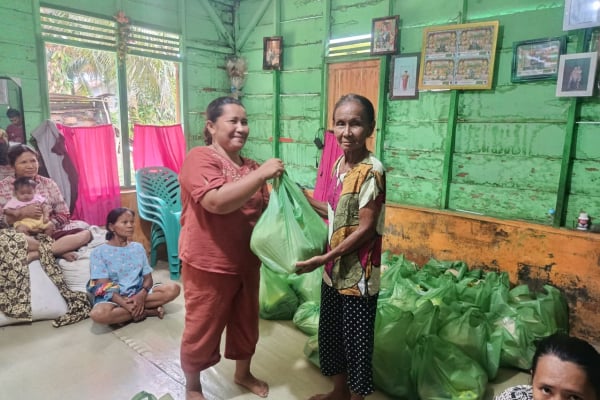






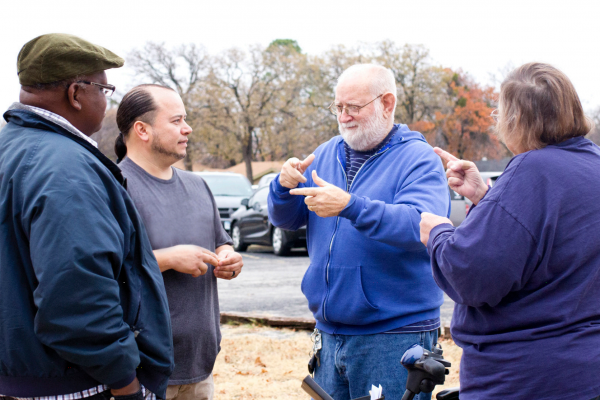


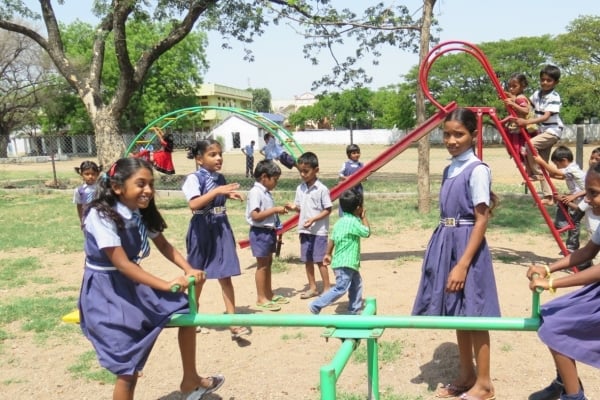


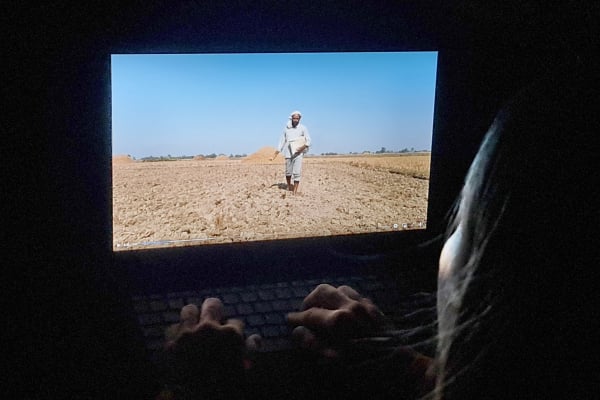



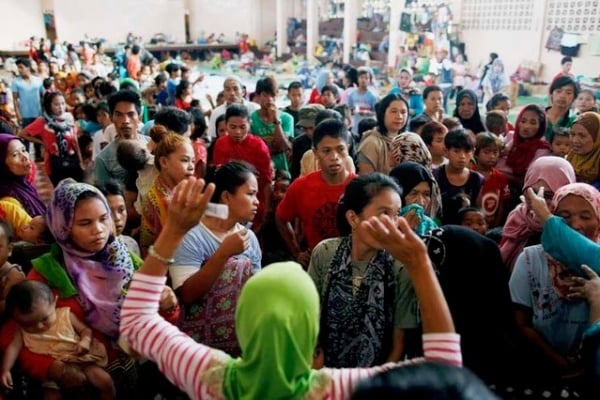




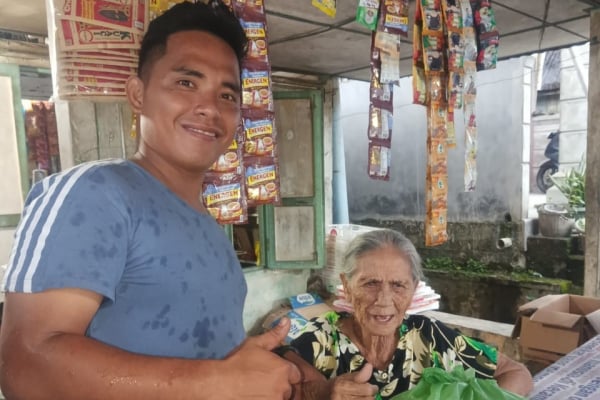

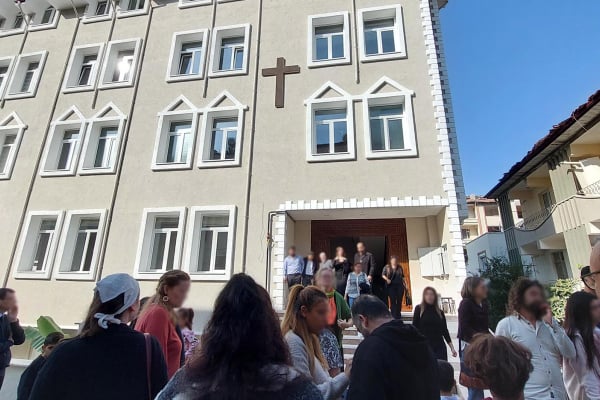

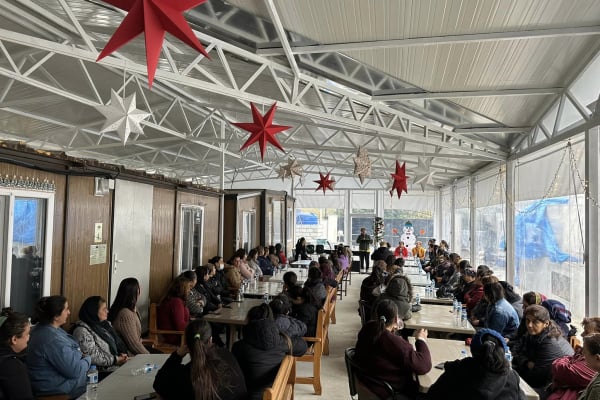
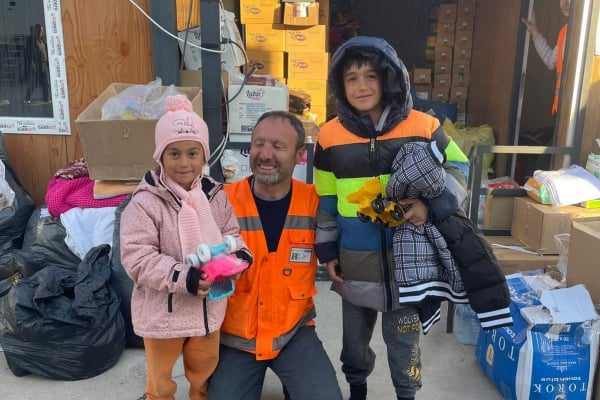
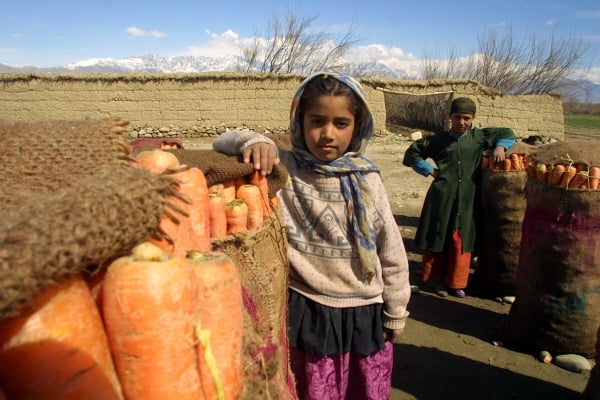
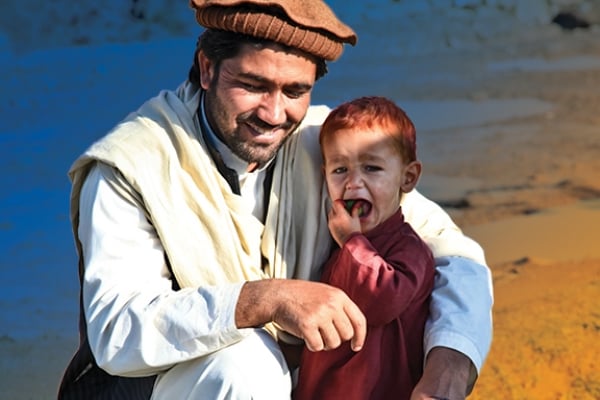
_1624034103_600x400.jpg)









